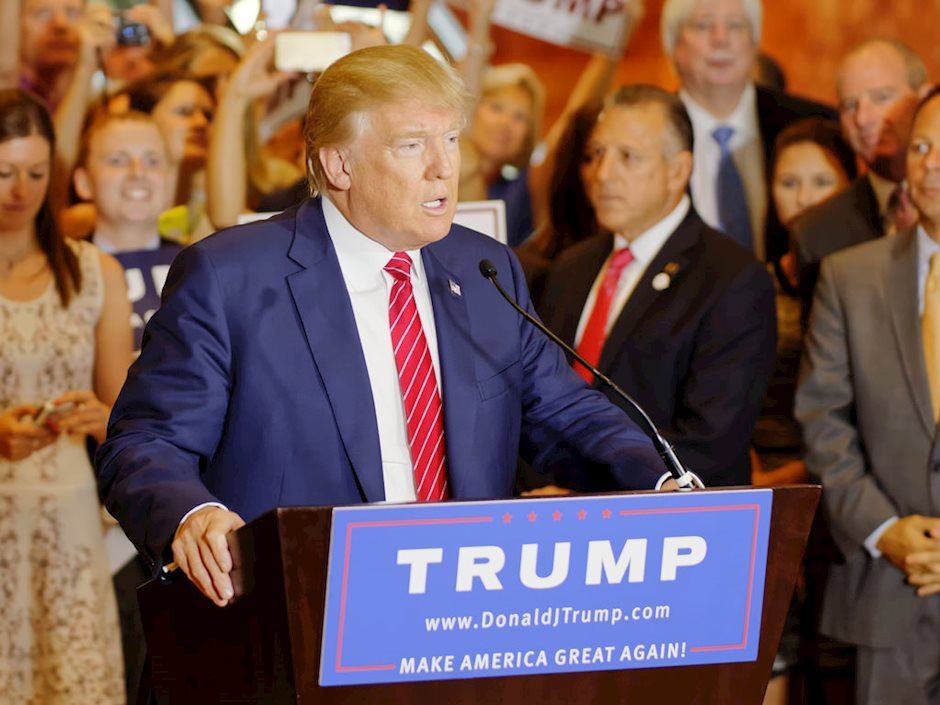Trump’s obsession with unfair trade deals

Outlook:
Institutional factors trump economic factors every time. Today we have a confluence of an institutional factor—Trump’s obsession with unfair trade deals that have delivered a $500+ billion trade deficit—and the data that proves the point. It’s entirely in keeping with what we know about Trump that he will use this open window to do or say something outrageous and inflammatory. We guess that Canada will get the immediate brunt of it, but the threat of $200 billion of tariffs on Chinese imports is another top candidate.
Imposing tariffs on China doesn’t necessarily affect emerging markets, but it will, on the assumption that China will buy fewer raw materials—copper being the new poster boy but also iron ore, as we saw earlier this year. Other metals, grains, livestock, and various commodities will be affected in their own commodity contagion whirlwind. Output in those markets will retreat until prices go up again, but this can take a very long time, and in the meanwhile, exploration and new development come to a grinding halt. Countries that try to sneak in their exports as substitutes for Chinese goods may get away with it for a while, but nobody has the depth and breadth of China. Costs in importing countries will go up, aka inflation.
We think Trump will get us there—rejecting Canada, imposing tariffs on China—possibly as early as this week. The timing has two motivations: to distract attention from the new Woodward book revealing he is unfit for the job and to arouse the base to get out and vote in the mid-term, even if they are over 60 days out (Nov 6). We already see the Dems pulling together a “blue wave” to take control of the House, and a Dem-controlled House almost certainly means impeachment. It won’t succeed because it’s the Senate that does the final vote, but Trump doesn’t want to get impeached in the first place.
The Woodward book is damning. Bob Woodward, the gold standard of political reporting (played by Robert Redford in the Watergate movie “All the President’s Men”) has now taken on Trump. He has written books about every president since Nixon, but this one will be a blockbuster, not least because he is the classic old-fashioned reporter, with multiple sources for every statement and often contemporaneous notes by witnesses and his own tape recordings. Trump can cry “fake” all he wants, but everyone knows he has met his match in Woodward.
The book is not due until next week, but the Washington Post is delivering excerpts and they are stunners. First is the title of the book, “Fear.” The fear of which Woodward speaks is the fear of White House staffers, who see Trump as acting like a 6th grader, failing to grasp basic facts of history (including McCain’s authentic heroism and why the US is still in Korea), and stealing papers off his desk so he can’t sign them. One incident entrails a top military advisor refusing to obey an order from the Commander-in-Chief to assassinate a foreign leader (Assad), the right thing to do but disobeying a superior’s order all the same.
This reminds us of the comment made before the election that the military would refuse to carry out stupid and wrong Trump orders, but at the same time, violates the rule of law in the US, so important to survival of the republic.
Bottom line, Woodward depicts the Trump administration as being in a state of “nervous breakdown.”
Perhaps the scariest part is Trump’s own lawyer telling the special prosecutor that Trump can’t testify because he will contradict himself and tell lies, as he did during a practice run. The lawyer resigned the next day, Trump refusing to acknowledge he was a terrible witness and had a melt-down at the end of the practice session. The chief of staff called it Crazytown.
All of this means worsening conditions everywhere while the US ship sails on. It’s terribly unfair, but finance is not about fairness. We expect the dollar to continue upward. The birds don’t come home to roost in the US for over a year, if not longer, due to the size, diversity and robustness of the US economy.
This is an excerpt from “The Rockefeller Morning Briefing,” which is far larger (about 10 pages). The Briefing has been published every day for over 25 years and represents experienced analysis and insight. The report offers deep background and is not intended to guide FX trading. Rockefeller produces other reports (in spot and futures) for trading purposes. To see the full report and the traders’ advisories, sign up for a free trial now!
This is an excerpt from “The Rockefeller Morning Briefing,” which is far larger (about 10 pages). The Briefing has been published every day for over 25 years and represents experienced analysis and insight. The report offers deep background and is not intended to guide FX trading. Rockefeller produces other reports (in spot and futures) for trading purposes.
To get a two-week trial of the full reports plus traders advice for only $3.95. Click here!
Author

Barbara Rockefeller
Rockefeller Treasury Services, Inc.
Experience Before founding Rockefeller Treasury, Barbara worked at Citibank and other banks as a risk manager, new product developer (Cititrend), FX trader, advisor and loan officer. Miss Rockefeller is engaged to perform FX-relat

















